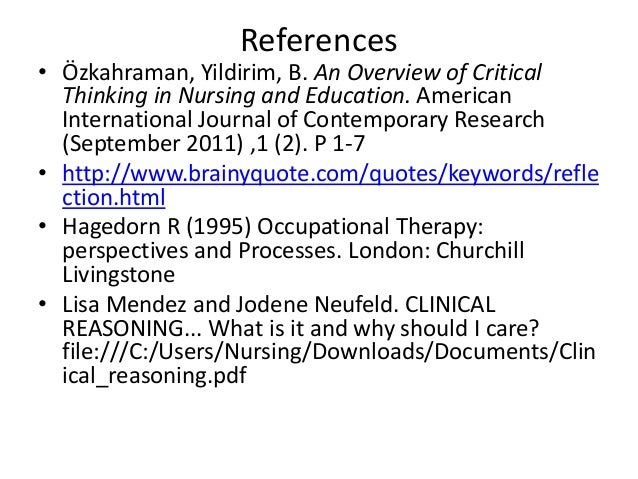Critical Perspective Of The Construct Of Intelligence Pdf Reader

Because this book is now out of print, this Portable Document File (PDF) is formatted for two-sided printing. The non-psychologist reader may have to absorb some new terminology. Unfortunately, mental processes. Work of Richards J. On the psychology of intelligence analysis available to a new generation of. Critical Theory Today: A User. Reader-response theory shares common ground with some of the deconstructionists. Interact with, and construct the.
Despite its avowed goal of understanding individual behavior, the field of behavior analysis has largely ignored the determinants of consistent differences in level of performance among individuals. The present article discusses major findings in the study of individual differences in intelligence from the conceptual framework of a functional analysis of behavior. In addition to general intelligence, we discuss three other major aspects of behavior in which individuals differ: speed of processing, working memory, and the learning of three-term contingencies.
Despite recent progress in our understanding of the relations among these aspects of behavior, numerous issues remain unresolved. Researchers need to determine which learning tasks predict individual differences in intelligence and which do not, and then identify the specific characteristics of these tasks that make such prediction possible. The surprising and consistent empirical finding in psychometric intelligence research is that people who do well on one mental task tend to do well on most others, despite large variations in the tests' contents This was Spearman's (1904) discovery, and is arguably the most replicated result in all psychology. () Historically, the study of individual differences has been an area of research relatively separate from experimental psychology. While experimental psychology has focused on the processes that determine performance in specific experimental situations, the field of individual differences has studied the stable differences among people, particularly those that generalize across diverse situations. Dod 512 Reverb Effects Processor Manual here.
The behavioral differences that have received the most attention in this regard have been personality traits and cognitive abilities. Behavior analysis has largely ignored such differences, other than those that are explainable in terms of reinforcement history. This disregard of individual differences is puzzling, given that behavior analysts emphasize that their research focuses on the behavior of individuals rather than on group averages. After all, it is the differences among individuals that distinguish them from the average. The disregard of individual differences also is surprising because the agenda of behavior analysis includes the analysis of behavior in educational settings, and individual differences in performance are among the most salient aspects of behavior in such settings. Careful programming of environmental contingencies often can improve educational accomplishment, although the fact remains that individuals vary widely in how effectively they deal with academic topics.
